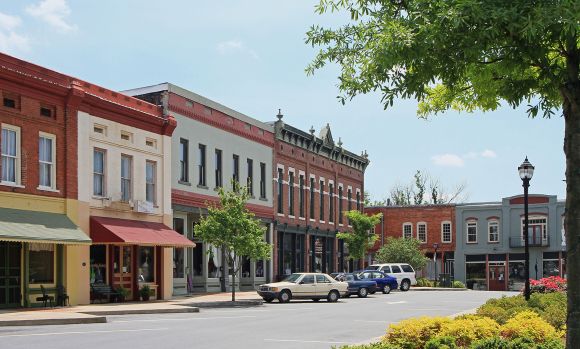By Bill Shelton, CEcD
Franchised operations are increasingly being sought by communities to achieve retail and economic goals.
Since many communities favor local business expansion and development, franchises are viewed as helping to achieve two community goals. First, franchises represent a business model that is usually owned by a local business, either an individual or a corporation.
Also, local entrepreneurial or business development programs may be better served by encouraging people to open and operate a franchise rather than launching an independent startup from scratch. Of course, franchises are not risk-free, but independent businesses stand a 70 to 80 percent chance of NOT surviving the first few critical years while franchises have an 80 percent chance of surviving (Michael M. Coltman, Franchising in Canada: Pros and Cons. Self-Course Press).
Secondly, franchises can help achieve community goals by expanding and diversifying a community’s retail base, particularly for products or services that are missing or underserved. A surplus/leakage analysis can indicate local market supply and demand for products and services, which can translate into new or expanded franchises as well as other business opportunities.
So are expanded franchise operations a viable economic development and retail strategy for your community?
If you want a franchise recruiting strategy to be successful, then it is important to understand some of the unique characteristics of franchises and how to take advantage of them.
Understand franchise trends. A study by the consulting firm HS Economics for the International Franchise Association stated, “Continued acceleration in the pace of economic activity will create the conditions for another strong year of growth for the franchise sector in 2015… We expect the number of franchise establishments in the United States to increase by 1.6% in 2015 matching the pace of growth in 2014.”
In recent years during difficult times, private equity money and traditional loans dried up so now many franchise companies offer in-house financing options. This trend helps new franchisees obtain start-up loans and existing operators to expand.
Identify potential franchisors. Finding information and conducting due diligence analyses about franchisors and their operations can be completed in a number of ways. There are firms with databases that list franchise opportunities. These firm’s websites can be found with browser searches.
Also, information about franchise opportunities can be found every Wednesday in the Franchising Today section of USA Today.
Finally, the website of the International Franchise Association is a source of information about the franchise industry as well as individual operations.
Identify local franchisees. While a franchisor may consider your community to be attractive and a potential location they also require a franchisee, which is a local individual or corporation who owns or manages the operation. To ensure a positive reception before contacting candidate franchisors, a community should identify possible franchisees – either as owners or managers. By making this effort, the community improves its chances of getting a positive reception from the company.
Help with start-up and beyond. Aggressive communities are identifying and encouraging potential local franchisees by offering incentives such as assistance in the selection process, funding for franchise applications, funding for some or all of the necessary training and other financial incentives that help lower early stage start-up fees. These incentives help start-up franchisees during that critical incubation period and help ensure success.
A community with a clear sense of its retail needs and opportunities, plus a long-term vision, may find franchise operations help to achieve its economic and retail goals.


